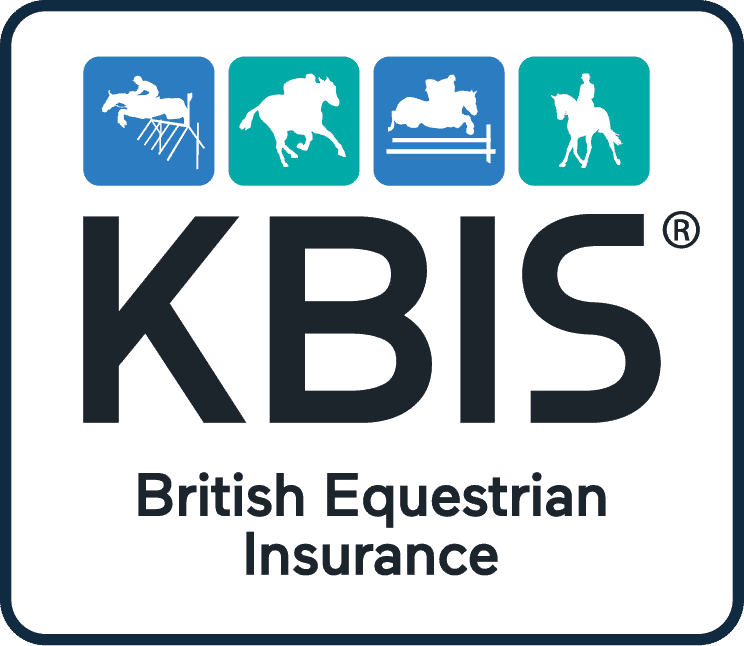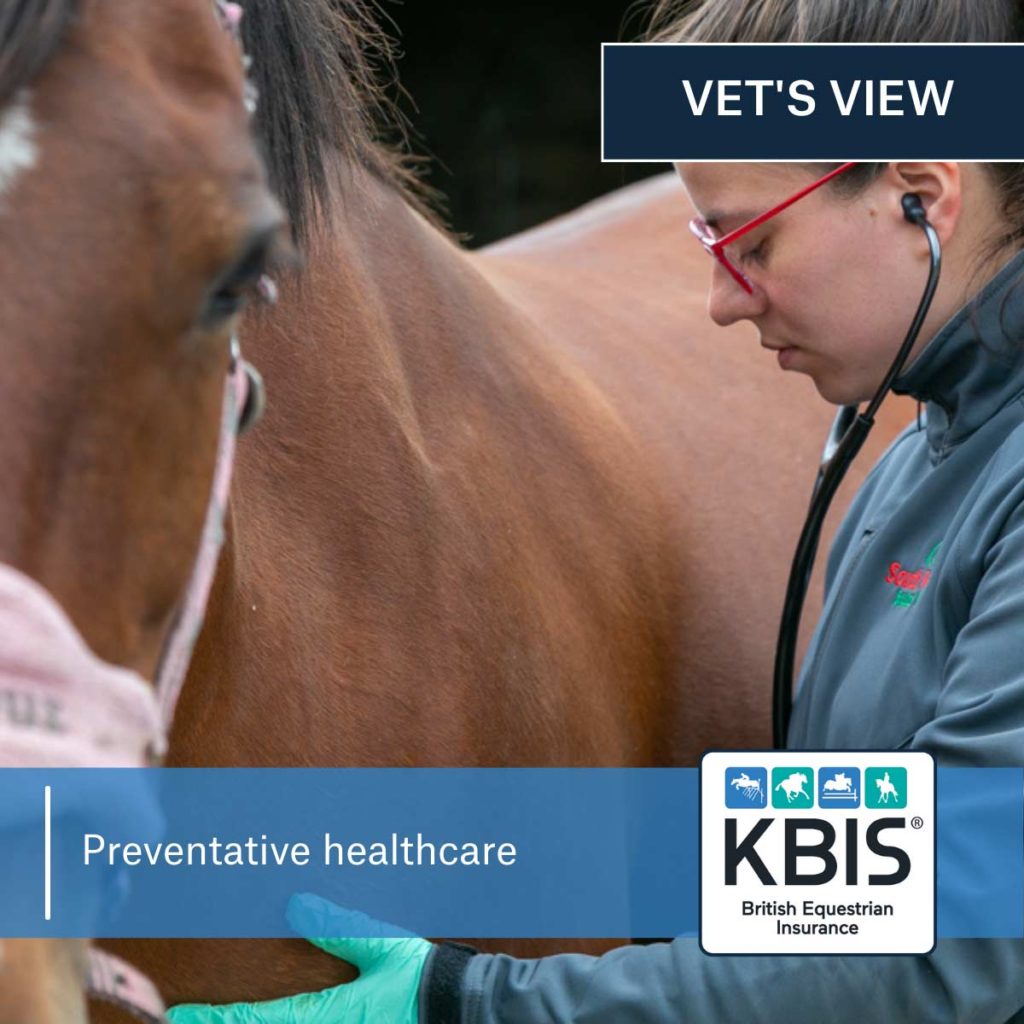Preventative healthcare has a host of benefits for you and your horse. As well as doing everything possible to reduce the risk of diseases such as influenza, tetanus and worm-related conditions, it also allows an opportunity for your vet to check your horse over for any other issues and address any concerns you may have.
Regular dental assessment and treatment means your horse can perform at its best and avoid any discomfort when eating. All of this is aimed at keeping your horse in tip-top condition so you can get out riding, competing, or whatever you enjoy doing with your horse.
Vaccination
Annual vaccination forms the basis of preventative health care in the horse. Horses are commonly vaccinated against both equine influenza and tetanus, and proof of regular vaccination is required if you wish to compete your horse or take part in Riding Club or Pony Club activities.
Influenza is a viral respiratory disease that can affect horses of all ages. It causes pyrexia (raised temperature), coughing, and a runny nose. Affected horses often need several weeks off work and may develop very serious complications such as pleuropneumonia. The virus spreads through the air and, without vaccination can spread extremely rapidly through a yard. Vaccinating your horse against influenza reduces both the chance of becoming infected, as well as reducing the risk of spread to other horses. If your horse did develop flu, despite vaccination, it is likely to be a much milder form allowing more rapid recovery.
Tetanus is a very serious, usually fatal, disease caused by toxin producing bacteria (Clostridium tetani) which are present in soil and droppings.
The bacteria can enter the body via something as simple as a wound or foot abscess. Therefore even horses that do not travel or mix with other horses can be susceptible to the disease. The bacterial toxin causes muscles to become rigid so that the horse becomes stiff and is reluctant or unable to move. As the jaw muscles become affected, the horse may become unable to eat (hence the old name ‘lockjaw’) and as paralysis spreads, breathing may also be affected. Horses are particularly sensitive to the toxin compared to other species and, unlike humans, require life-long, regular vaccination against the disease.
Routine dental examinations
Regular dental examinations allow routine rasping of sharp points and edges in order to avoid discomfort when eating or being ridden. As horses’ teeth continually erupt dental rasping is usually performed annually. This should always be carried out by a Vet or qualified Equine Dental Technician as they will also examine the mouth for signs of other dental disease which may need further treatment or attention. For many horses, sedation allows a more thorough examination and treatment, and ensures the whole process is stress-free for both horse and owner!
Worming
The approach to worm control has changed a lot in recent years. Instead of regular worming, good pasture management is recommended alongside regular testing to assess your horse’s worm burden, with appropriate treatment if required. This is to avoid unnecessary treatment which can lead to the worms developing resistance to the drugs we have available to us.
A low burden of worms is normal and can be considered healthy as it helps to stimulate a horse’s immune system. It is only when worm burdens become excessive that diseases can occur. Faecal worm egg counts (FWEC’s) allow the assessment of your horse’s burden of redworms and roundworms and a saliva test enables testing for tapeworms.
When reporting the results of these tests your vet can advise if treatment is necessary, recommend an appropriate wormer and create a worming plan for your horse or your yard.
Recently a blood test has been developed to test for the encysted lifecycle stages of small redworm, which can be potentially dangerous for your horse. We advise speaking to your vet to find out whether this blood test is appropriate for your horse. If your horse does not have a yearly redworm blood sample, it is recommended that all horses are wormed at least once a year in the late autumn/winter with a moxidectin-based product irrespective of their worm egg count result.
The Horse Health Programme
Offered by CVS Equine veterinary practices across the UK, the Horse Health Programme is a preventative healthcare package and at £13.99 per month, provides everything you need for your horse for a year of preventative healthcare, spreading the cost over 12 months and saving you an average of £150**
The benefits are:
• Annual flu/tetanus vaccination
• Dental check with routine floating including sedation if required
• Annual health check
• Four faecal worm egg counts
• Autumn tapeworm saliva test with autumn wormer as required
• 10% off all veterinary treatment including medicines
• 20% off discount on selected lifetime care medicines*
• Multi horse discount (of £1 off per month) for each additional horse
• 10% discount on vet fee insurance with KBIS
Instead of paying monthly, you can pay £155.88 annually and save yourself another £12.
T&Cs apply.
*CVS reserves the right to change lifetime medicines. **Sample savings based on the cost of purchasing these goods and services separately (based on average prices charged across a sample of CVS equine practices) would result in average annual savings in excess of £150. Benefits, costs, and savings vary depending on the weight of your horse.


